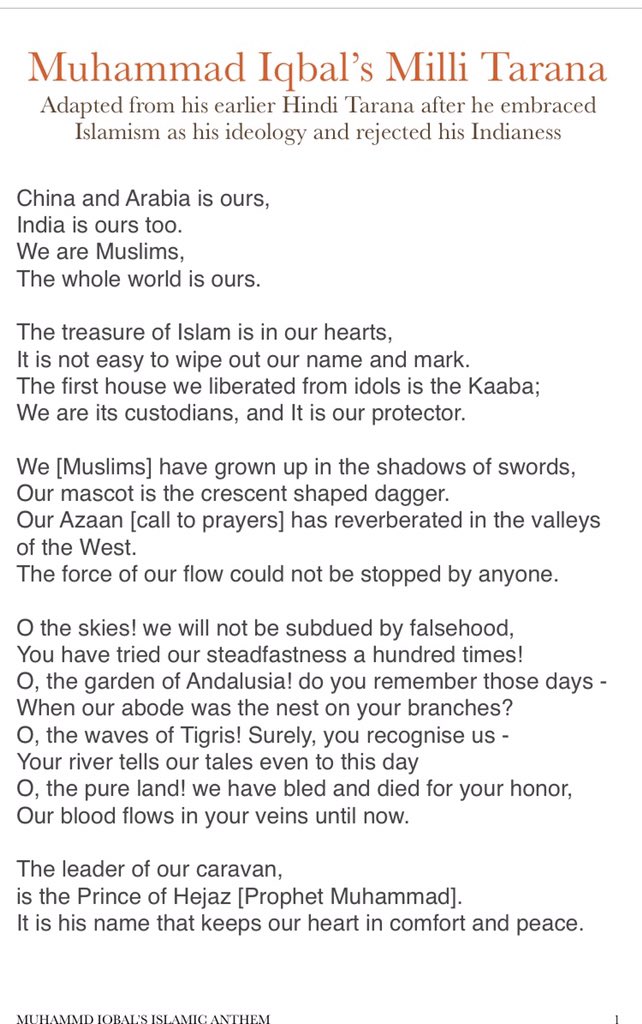

Unfortunately for the Ummah lovers, that vision is unlikely to ever come true. The Ummah which does not constrain itself with any national boundaries but believes that it has an Allah-given right to lord over the entire world. This is the pure vision of the Ummah in poetry. It said, “Cīn o-ʿArab hamārā, Hindūstāṉ hamārā, Muslim haiṉ ham, wat̤an hai sārā jahāṉ hamārā”. The first stanza of this particular composition contrasted sharply with the sixth stanza of his prior composition. It was composed in the same metre and rhyme scheme as ‘Sare Jahaan Se Achcha’ and was composed for children. In Tarana-e-Milli, the Islamic fundamentalist nature of Muhammad Iqbal become entirely evident. Unsurprisingly, not much is spoken of the Tarana-e-Milli which was composed by Iqbal in 1910.

Unfortunately, in Independent India, the entire legacy of the Islamic fundamentalist poet has been reduced to these two lines, ignoring almost entirely his contribution to the formation of Pakistan. The most famous lines of the composition say, which formed its sixth stanza, “Maẕhab nahīṉ sikhātā āpas meṉ bair rakhnā, Hindī haiṉ ham, wat̤an hai Hindositāṉ hamārā”. The now famous composition ‘Sare Jahaan Se Achcha’ was published in 1904 by Muhammad Iqbal, a year before the Partition of Bengal in British India. Needless to say, if the Muslims of this country decide to follow Muhammad Iqbal’s words in their entirety, Hindus have plenty to worry about. But in Secular India, his words were held up as an example for Hindus and Muslims to follow. Any self-respecting country would have thrown Iqbal into the dustbins of history for the morbid political worldview he advocated which manifested itself in the form of Pakistan. However, the intoxicating capabilities of Nehruvian Secularism are so potent that it renders an individual unable to grasp even the semblance of reality. In Independent India, under the patronage of Nehruvian Secularism, Iqbal has come to be regarded as a beacon of Secularism and the underlying cultural unity between the Hindus and Muslims of India.Īnyone with half a thinking mind should have realized that Muhammad Iqbal was a very poor ambassador for the mythical construct of Ganga-Jamuni Tehzeeb. Indians, of course, know him as the pen behind the famous composition ‘Sare Jahaan Se Achcha’. The 21st of April marks the death anniversary of Muhammad Iqbal, one of the most significant proponents of the two-nation theory and the creation of Pakistan in the first half of the 20th Century.


 0 kommentar(er)
0 kommentar(er)
